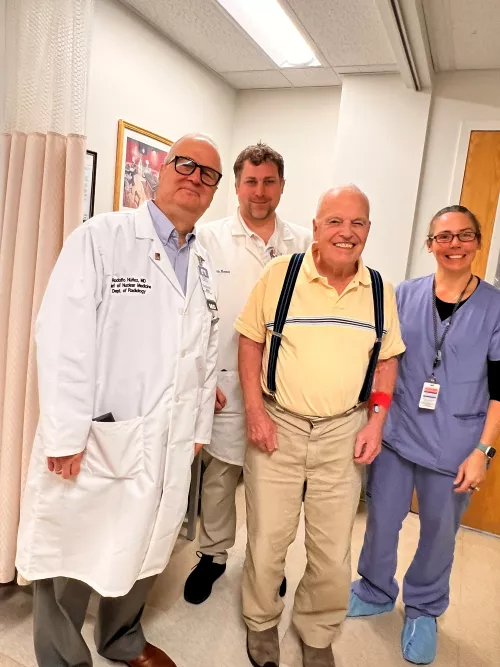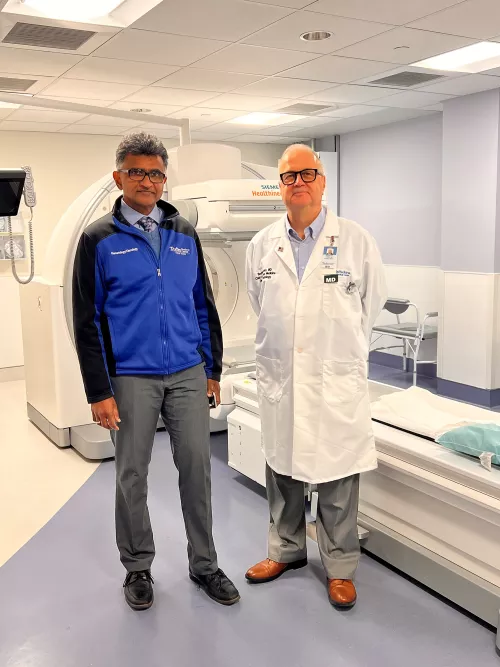
Tufts Medicine brings a next-generation treatment for advanced prostate cancer that offers new hope for patients whose cancer has spread and no longer responds to hormone therapy or docetaxel chemotherapy.
This new radioligand therapy is a precision-medicine technology targeted directly to prostate cancer that has spread using a radioactive element, lutetium-177 (Lu-177). Lu-177 is linked to a molecule attracted to the outside surface of the prostate cancer cells — the prostate-specific membrane antigen (PSMA). When injected intravenously (directly within a vein), it travels to target prostate cancer anywhere in the body.
Stephen Olney of Chelmsford, MA was the first patient to receive the new treatment.
“I’m feeling good after the infusion…today I am feeling 50% better. I look forward to feeling 100% better soon.”
Stephen Olney
Rodolfo Nunez, MD, Chief of Nuclear Medicine at Tufts Medical Center, sees great potential in this new technology and the new way in which it treats cancer.
“We can now see the presence of the PSMA receptor in the prostate cancer cells through PET/CT imaging, and subsequently deliver effective targeted radiation therapy to the same receptor/tumor cell,” says Dr. Nunez.
Paul Mathew, MD, is Stephen’s oncologist and has been treating him for the past year and a half. He credits the collaboration between the Nuclear Medicine and Medical Oncology teams to bring radioligand therapy to Tufts Medical Center.
“Radioligand therapy is more convenient, more effective and better tolerated than alternative chemotherapy options that were the previous standard of care for men with advanced treatment-resistant disease. We expect there will be further advances with targeted radioligand therapy that will follow as research into prostate cancer progresses.”

Both Dr. Nunez and Dr. Mathew remain steadfast in their extensive involvement in research efforts to improve survival outcomes for men with prostate cancer and bone metastases.
For Stephen, this means new hope when other treatments have stopped working. He feels grateful for this new treatment and says that that timely communication from his care team has been key in making his cancer journey a little easier.
“Dr. Mathew and Dr. Nunez are just the best at correspondence,” he says. “Dr. Mathew has even called me on a Sunday to check in. But I have to say my favorite thing here is the portal. I ask a question, go get a cup of coffee and my doctors usually answer me in a half hour. I’d tell anyone they are very smart to use Tufts.”